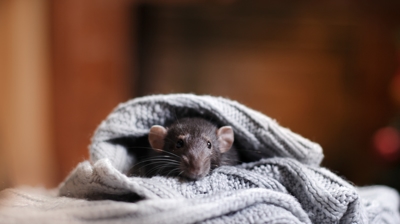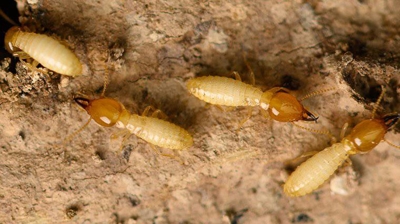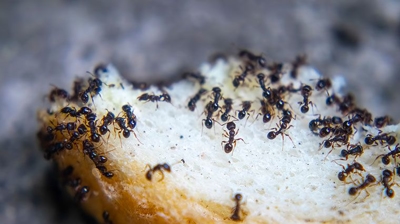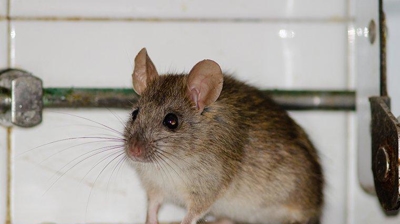
Flea Identification & Prevention
What You Need To Know About Fleas
Fleas are a type of external parasite that require blood meals to survive. These pests are visible to the naked eye and appear black or brownish in color. There are more than 2,500 different species of flea worldwide, and 300 species within the United States. Although people typically associate fleas with cats and dogs, these pests can also survive outside of a host. Fleas are known to live in carpets and rugs, as well as dog beds and other upholstery. Left alone to their own devices, these pests can quickly establish self-sustaining infestations. Reach out to us today for help with pest control in Jersey City or check out our e-book on fleas & ticks.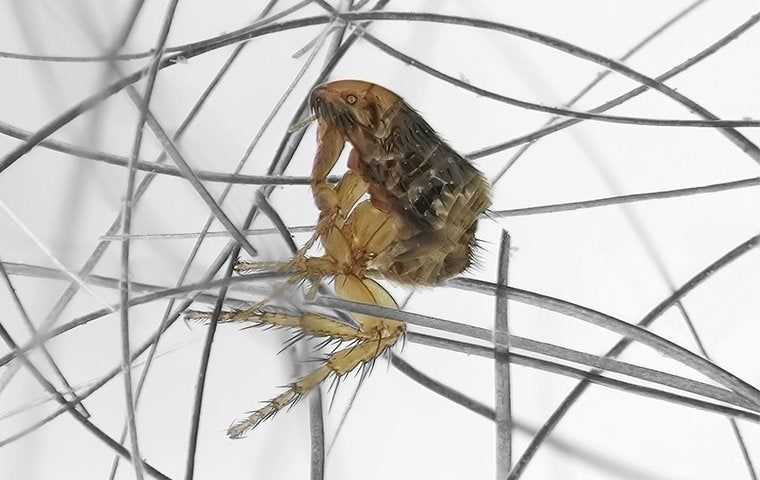
-
"Extremely Satisfied!"
We were super satisfied with Bayonne Exterminating Co. We had a mouse when I was 9 months pregnant and they came right away and took care of our problem.
Christina C. -
"Great Customer Service!"
Great at coordinating and scheduling.
Russell M.
Frequently Asked Questions About Fleas
Have questions? We are here to help. Still have questions or can't find the answer you need? Give us a call at 201-339-5119 today!
-
What are fleas?
Fleas are a species of flightless insects from the Siphonaptera order. They require the blood of warm-blooded mammals to survive and eventually fertilize their eggs. Here in Jersey City, the cat flea is the most common species to plague people and pets. These insects only reach 1/12 to 1/8 of an inch in size, although they can jump up to 12 inches or more while hopping from host to host.
-
Are fleas dangerous?
Fleas are credited with the spread of several serious diseases, including murine typhus, tularemia, and tungiasis. However, they’re far less likely to affect human populations apart from an itchy bite. On pets, flea bites can spread dangerous diseases and parasites that induce serious medical issues. Severe infestations may cause bartonellosis or anemia or spread serious tapeworm infestations.
If you think or know that a flea infestation is beginning to take root around your property, you need to contact a professional pest control like Bayonne Exterminating immediately.
-
Why do I have a flea problem?
You may be experiencing a flea problem if you own an indoor pet. Cats, dogs, and even parrots are known to carry fleas. Keep in mind that wildlife animals may also contribute to your flea population. If you’ve seen raccoons, opossums, skunks, or squirrels around your lawn, you may experience higher-than-average flea activity.
If you don’t own a pet or live near wildlife, you may have picked up fleas from someone else. If a friend, loved one, or family member has fleas, they’re likely to follow you home as well.
-
Where will I find fleas?
Fleas typically prefer shady areas with a great deal of outdoor moisture. Inside, they may live under the fur of your cat or dog or survive on carpets or rugs.
One way to identify the presence of fleas is with the "sock test." Put on pure white socks to at least knee-high length, then shuffle through the suspected area. Any tiny black specks found on the exterior of your socks may be a sign of a flea infestation.
-
How do I get rid of fleas?
Fleas are difficult to remove from a home once deeply rooted in the surrounding environment. After bringing your pets to the vet for treatment, consider calling the professionals at Bayonne Exterminating. Our team of experts can perform effective flea control within just a few weeks of visiting your property. Plus, we provide a six-month warranty to reinforce your peace of mind. Feel free to give us a call today and discuss your home pest control and commercial pest control options in greater detail.
-
How can I prevent fleas in the future?
The best way to get rid of fleas and prevent their reemergence is to take the following preventive actions:
- Have your dogs and cats treated for fleas by a trained veterinarian. You can opt for flea collars, topical treatments, or oral medications depending on your preferences.
- Keep the grass, trees, and shrubs around your property well-trimmed and maintained. The fewer shady areas there are around your property, the lower your risks may be for flea infestations.
- Wear long-sleeved clothing while out in the yard, especially near overgrown areas. You may want to tuck your pants into your socks for an extra layer of protection.
- Eliminate unnecessary outdoor moisture from puddles, potholes, or toys. Consider addressing interior moisture concerns as well, including leaky pipes or clogged drains.
- Regularly wash your cat and dog beds, including any blankets or fuzzy toys. It may be wise to throw away older bedding that may harbor flea eggs or nymphs.
- Caulk and seal any cracks and gaps around the interior of your property. You may want to opt for waterproof sealants that can last the test of time.
By putting these tips into action, you can help prevent future flea problems for you and your pets.
Stay In The Know
-
 Why Winter is the Best Time to Schedule Pest Control ServicesRead More
Why Winter is the Best Time to Schedule Pest Control ServicesRead More -
 Top 10 Common Summer Pests and How to Prevent ThemRead More
Top 10 Common Summer Pests and How to Prevent ThemRead More -
 6 Spring Pests To Watch Out ForRead More
6 Spring Pests To Watch Out ForRead More -
 4 Effective Strategies for Commercial Pest ControlRead More
4 Effective Strategies for Commercial Pest ControlRead More -
 Termites Be Gone: Proven Techniques for Successful Termite Control In Jersey CityRead More
Termites Be Gone: Proven Techniques for Successful Termite Control In Jersey CityRead More -
 Don't Let The Bed Bugs Bite: The Effective Control Solution For Your Jersey City HomeRead More
Don't Let The Bed Bugs Bite: The Effective Control Solution For Your Jersey City HomeRead More -
 Say Good Riddance To Ants In Your Jersey City HomeRead More
Say Good Riddance To Ants In Your Jersey City HomeRead More -
 Rodent Control 101: Essential Tips For Keeping Your Jersey City Home SafeRead More
Rodent Control 101: Essential Tips For Keeping Your Jersey City Home SafeRead More
